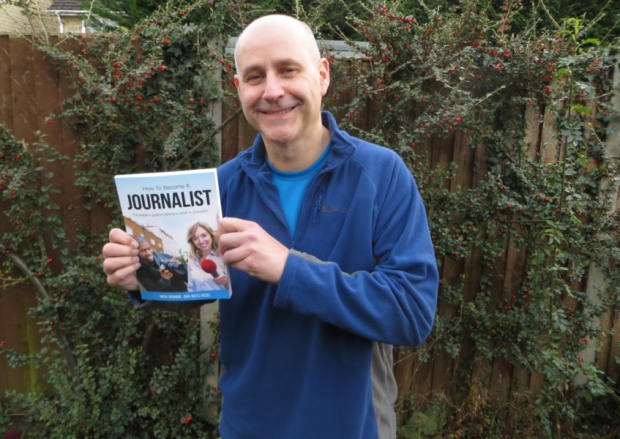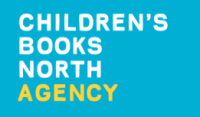Staying positive about publishing

By J. Paul Dyson
Managing Editor, firstwriter.com
firstwriter.com – Saturday September 24, 2005
One of the great things about working on a writers' site is that you get to see a lot of enthusiastic and exciting new writers. The flip side of this, however, is that you also meet a lot of jaded, bitter writers, who have come to the conclusion that there is some kind of "problem" with the publishing industry, given up any hope of ever seeing their work in print, and spend their days whinging about the terrible scourge of capitalism in the publishing world, blinding people to the value of true art.
The reality, however, is that the problem these writers face is that they have never decided why they were writing, or what they wanted to achieve by it. Without knowing what their goals were, it's little wonder they failed to achieve them.
So the first thing you must do to avoid this pit of pessimism is be clear in your own mind about why you are writing and what you want to get out of it. The answer is usually assumed to be "to get published", but this is a dangerous assumption to make. There are all kinds of reasons why people write: people write diaries and journals which are never intended to be read by anyone; people write because they have an urge to – because they enjoy it, or as catharsis – almost therapy; some write to be part of a society and have a hobby; others because they want to influence people; others for fame (whether on a small or large scale); and others simply for money. By and large, however, it boils down to one question: are you writing for others or are you writing for yourself?
Those who end up bitter are usually those write for themselves: they write the story they want to read; the message they want to send. There's nothing wrong with this, but it's important to recognise if you're writing for yourself that your audience consists of one person: you. Whatever your personal motivation, once you've had your fun writing your book (or reading it), benefitted from the cathartic experience, met some new friends through a writing club because of it, or whatever your personal motivation happens to be, it's important to recognise that your book's job is then done. It has succeeded in its purpose. It doesn't need to ever leave your house, or even the computer on which you wrote it. It doesn't need to go to a publisher, because it has already reached its target audience of one – it doesn't need to be shown to anyone else – it doesn't even matter if it is never read again. It has already achieved its goal.
Of course, for some lucky people the product of their personal motivations will, accidentally, coincide with a publisher's requirements and their book will be published anyway – but if you decide that publication is your goal from the outset then you need a distinctly different attitude: you need to write for other people, because that's what publication is for: to enable your book to be read by others. You need to write for agents, for publishers, and (above all) for the public. There's no point writing for yourself and then being disappointed when nobody wants to publish it – that's like inventing a product only you can use, and being surprised when companies aren't interested in mass-producing it.
And, yes, you are going to have to start thinking about your book as a "product". That's the point of publication: it's a process which turns your book into a marketable commodity for sale for profit. This is the point at which authors recoil in horror – their book isn't a commodity, it's art! – and if that's how you think that's fine – just don't send your book to any publishers. By making publication your goal you are stating that you wish to market your book as a commercial business interest. If that's not true then don't approach publishers, because they're commercial businesses. Don't open a market stall and then get offended when people try to buy and sell your wares.
If you don't want your art sullied by money then keep it between you, family and friends, and maybe small literary outlets. Don't send it to companies whose only purpose is to make money from books(!). Judge it a success on its own terms and be at peace with yourself and your writing, and with the professional writers whose role it actually is to satisfy the public's demands (that's right, they haven't sold their souls to the corporate devil, they're just doing their jobs).
If you want to be published and become one if these professional writers, however, set this as your goal from the outset and accept the mindset: you are beginning a commercial enterprise and aim to be a professional within the publishing industry (costs generated in the course of your writing are a legitimate business expense for tax purposes, even if you don't make any money). You are a supplier of raw materials, and the publishing houses are your customers. Your customers are always right. It's your job to supply your customers with the products they require in order to satisfy the market's demands. To achieve this you must be responsive to your customers and to the trends within the marketplace.
This kind of language is alien to the isolated author sat at their keyboard "being creative", but it's exactly the environment into which your manuscript will be heading when it enters the publishing business. Purge from your mind any notion that books will be published on the basis that they appeal to the editor who reads them – at any big publishing house the people reading the manuscripts are likely to be graduates not long out of university, with a standard form to fill in for any proposed new product – and it won't be covering how many times the reader laughed, or how rapidly they turned the pages. It will be full of numbers. It will cite similar titles already in the marketplace, sales figures, production costs, likely marketing budget, likely sales and return on investment over various numbers of years; placement within the market: whether it will conflict with and take market share away from existing titles by the same publisher; whether it captures any strategic market share; and, of course, a bottom line. Most companies will have a simple minimum profit margin, and if the numbers come in below it the book gets rejected (unless it's of unusual strategic value). If the numbers come in above the minimum profit margin then it will probably go off to the department's manager for possible approval, where it will either get accepted and signed off, or passed over for a similar book from another writer, which has 50 fewer pages and therefore lower production costs and, in turn, higher potential profit margins.
If you're not willing to accept this kind of business approach to writing then your world is that of the small literary magazine and the small literary press: people who publish niche literary works for the love of them, not for profit. Stick to this area and aim to become a part-time writer with notoriety within a small literary field. You'll have a much better chance of success, more realistic expectations, and avoid the bitterness that can arise from the inevitable stream of rejections that commercial publishers will give for non-commercial works.
If you are determined to be a commercial writer then remember that the publishing houses are your customers, and that you are the equivalent of the double-glazing salesman who knocks on your door in the middle of your dinner, or the salesperson who calls during your favourite show to try and get you to change electricity supplier. You're just another person trying to get someone to buy something they didn't ask for and probably don't want. Just imagine the publishing houses of the world are actually the consumers on your steet, and every day you and a swarm of hundreds of double-glazing salesmen descend upon it. Do you have a God-given right to be the 200th person to knock on someone's door in a week? Are you really entitled to be angry with them and bitter if they say "no thank you, we already have double-glazing"?
So, to stay positive in publishing, make sure you know what you want out of your writing, and that you target your efforts accordingly at the people who will actually be interested. Remember that if you fail to sell your product it's a problem with your product, not the people you're trying to sell it to – it's your job to give them something they actually want to buy. If you do, they'll buy it. Remember that you're a salesperson – a pest – a nuisance – and be grateful if people are just polite and patient with you. Remember that you're making an imposition of yourself. A little humility will go a long way...




 Want to Succeed at Self-Publishing? Harness Your Passion: Tips from an Indie Author
Want to Succeed at Self-Publishing? Harness Your Passion: Tips from an Indie Author A manifesto for self-publishing authors
A manifesto for self-publishing authors 50 Shades of self-publishers: Fame and fortune through publishing yourself online
50 Shades of self-publishers: Fame and fortune through publishing yourself online Is self-publishing the new black?
Is self-publishing the new black? How I got a publishing deal - An interview with author, Rachel North
How I got a publishing deal - An interview with author, Rachel North How I got a publishing deal - An interview with author, Francis Sookraj
How I got a publishing deal - An interview with author, Francis Sookraj How I got a publishing deal - An interview with author, Christine McAteer
How I got a publishing deal - An interview with author, Christine McAteer When the Sharing Economy Comes to Publishing
When the Sharing Economy Comes to Publishing Want to Succeed in Self-Publishing? Have a Plan: Tips from an Indie Author
Want to Succeed in Self-Publishing? Have a Plan: Tips from an Indie Author Melton Times reporter Nick Rennie shares the secrets of writing and self-publishing your own book
Melton Times reporter Nick Rennie shares the secrets of writing and self-publishing your own book How to get a job in digital publishing
How to get a job in digital publishing Thinking Of Publishing A Book? Here Are Three Things You Need To Know
Thinking Of Publishing A Book? Here Are Three Things You Need To Know Want to Succeed in Self-Publishing? Be Realistic: Tips from an Indie Author
Want to Succeed in Self-Publishing? Be Realistic: Tips from an Indie Author Bournemouth to host romance writing festival for writers
Bournemouth to host romance writing festival for writers New Publisher Listing: Adventure Books by Vertebrate Publishing
New Publisher Listing: Adventure Books by Vertebrate Publishing New Literary Agent Listing: Amandeep Singh
New Literary Agent Listing: Amandeep Singh New Magazine Listing: The BSFA Review
New Magazine Listing: The BSFA Review New Publisher Listing: Practical Pre-School Books
New Publisher Listing: Practical Pre-School Books DK ventures into children’s fiction with new imprint DK flip
DK ventures into children’s fiction with new imprint DK flip New Publisher Listing: Sourcebooks eXplore
New Publisher Listing: Sourcebooks eXplore New Book Publisher Listing: Sourcebooks Horror
New Book Publisher Listing: Sourcebooks Horror Hayward poet Pat Doyne holds free metaphor workshop
Hayward poet Pat Doyne holds free metaphor workshop New Publisher Listing: Bearded Badger Publishing Co.
New Publisher Listing: Bearded Badger Publishing Co. Authors await overdue payments as publisher Unbound goes into administration
Authors await overdue payments as publisher Unbound goes into administration New Literary Agency Listing: Children’s Books North Agency
New Literary Agency Listing: Children’s Books North Agency New Spotify Audiobooks publishing programme for independent authors
New Spotify Audiobooks publishing programme for independent authors Publisher Unbound Slides Into Administration
Publisher Unbound Slides Into Administration ChatGPT firm reveals AI model that is ‘good at creative writing’
ChatGPT firm reveals AI model that is ‘good at creative writing’
